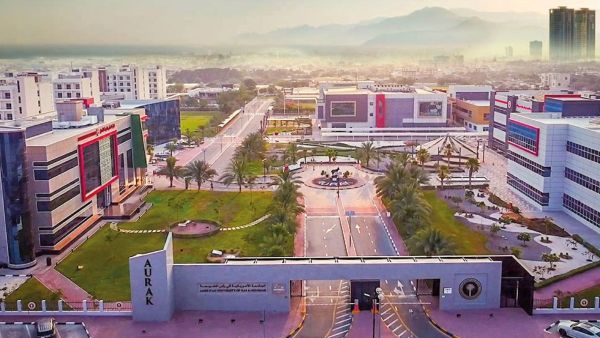Connected Classrooms in the Limelight: New Study Shows How Educational Cyber-Physical Systems (ECPSs) Can Transform Higher Education

A groundbreaking research study published in Information (MDPI) unveils the transformative potential of Educational Cyber-Physical Systems (ECPSs) in reshaping university learning for the digital age.
The research titled “Educational Cyber-Physical Systems (ECPSs) for University 4.0” explores how ECPSs have the potential to transform teaching practices, improve learning outcomes, and advance student success. ECPSs basically combine physical classroom environments with digital technologies, sensors, and artificial intelligence.
ECPSs operate within the Internet of Everything framework, connecting people, devices, services, and data to create intelligent, responsive learning ecosystems. By monitoring student activities in real time and enabling continuous feedback loops, ECPSs empower educators to adapt instruction dynamically and support learners with precision.
The research was co-authored by Dr. Khouloud Salameh, Associate Professor of Computer Science at the American University of Ras Al Khaimah (AURAK) and four researchers from the University of Pau and the Adour Region, France.
The study demonstrates how ECPSs address key issues in higher education, including disengagement, unequal access, and supervision in hybrid settings. Teachers gain instant insights into student progress, enabling early intervention, while students benefit from personalized dashboards that promote self-reflection and ownership of learning. Whether on-site or remote, all learners enjoy equitable access to resources and collaborative opportunities.
Professor Khalid Hussain, Provost at AURAK, said: “In today’s challenging times, we are delighted to be part of a global study that demonstrates how smart hybrid learning is the most effective way of tackling the challenges faced by higher education institutions. The findings will help universities to make learning more student-focused and dramatically personalised, while ensuring inclusive and equitable participation.”
Dr. Khouloud Salameh added: “COVID-19 provided the right impetus for this study. Through this research, we showed how ECPSs could monitor and analyze student activities in real time, creating a connected and intelligent learning environment. ECPSs integrate people, devices, services, and data through the Internet of Everything framework. By doing so, they enable continuous feedback loops that guide and adapt teaching. This makes the classroom more dynamic, data-informed, and responsive to student needs.”
The research was conducted during COVID-19 lockdowns. A hybrid IP telephony course involving 54 students showcased ECPSs in action. Students collaborated across locations, while instructors monitored progress through real-time dashboards. The system identified learning bottlenecks, flagged errors, and enabled reflective learning through activity logs. The results confirmed that even complex, distributed classrooms can be effectively supervised and optimized using ECPSs.
ECPSs ensure every student’s journey is visible and supported, regardless of location. Remote learners can connect to lab equipment and collaborate seamlessly, reducing educational inequalities. Moreover, ECPSs prepare graduates for Industry 5.0 by cultivating skills in human–machine collaboration, adaptability, and data-driven problem-solving—hallmarks of the future workforce.
Along with Dr. Khouloud Salameh, the other co-authors of the research were Dr. Laurent Gallon, Dr. Richard Chbeir, Dr. Samia Bachir and Dr. Philippe Aniorté from the University of Pau and the Adour Region, France. The article is available as open access, ensuring global visibility and impact. DOI: 10.3390/info15120790.
Background Information
American University of Ras Al Khaimah (AURAK)
The American University of Ras Al Khaimah (AURAK) is a public non-profit, independent, coeducation institution of higher education which delivers an integrated American-style, undergraduate and graduate education with a strong focus on the local indigenous culture. All of our programs are accredited by the UAE Ministry of Higher Education and Scientific Research. The American model of higher education, in addition to developing skills in specific academic fields, also provides a general education curriculum which exposes students to new ideas and new ways of doing things, promoting critical thinking on a wide range of local and global issues. AURAK gives students the opportunity to become fluent in English, as it is the medium of instruction. By the time of graduation, all of our students have developed a full professional proficiency in English, thus maximizing their prospects in terms of professional careers and further studies. AURAK has handpicked a top class faculty from all over the world, ensuring that students receive the highest possible standard of education, equipping them to become leaders in their field of study, and preparing them to enter the working world as well-rounded, global citizens.







